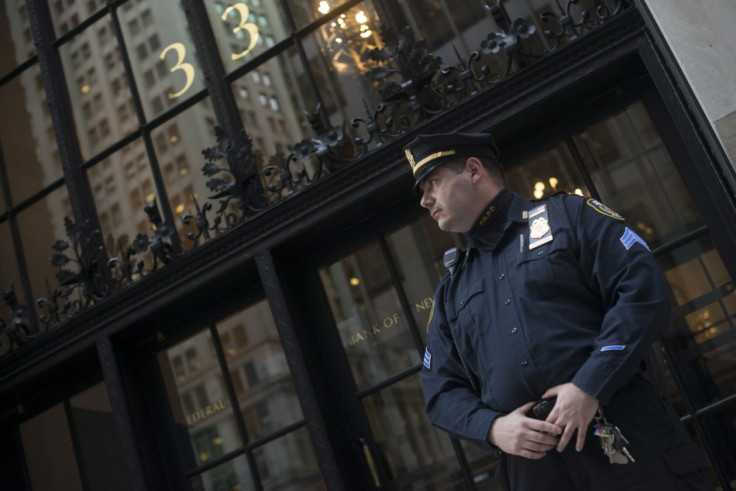Banks Too Big to Jail? Lawyers Say Lenders above the Law

C
The criminal prosecution of investment banks is too difficult to take on, high-profile attorneys have told IBTimes UK, echoing a similar sense of unease that has troubled regulators and lawmakers as they debate the overhaul of the global financial markets.
With massive fines being amassed by two of Britain's biggest banks - and speculation of fines of many billions of pounds more to come - senior regulators are growing increasingly concerned that major financial institutions are effectively becoming "too big to prosecute" in criminal courts and are simply content with paying huge penalties in civil proceedings to mask their alleged criminal activities.
"Criminal cases have a higher burden of proof than civil cases as a general matter," said David Kovel, a partner in the New York office of Kirby McInerney LLP and one of the pioneers of class-action lawsuits over alleged Libor manipulation.
"So even if there is no smoking gun, these banks may owe potentially billions of dollars to investors and others who trade in Libor-related products."
Concerns that banks have grown too large and too financially interconnected to the broader economy were given new life by comments by Britain's incoming financial market watchdog in the Daily Telegraph.
Andrew Bailey, who will head the UK's chief banking supervisor, the Prudential Regulatory Authority, from next year, told the paper that criminal prosecution raised "very difficult questions" for regulators.
The interview followed the announcement that HSBC had settled for a record fine with US authorities over money laundering allegations, linked to drug trafficking, of $1.9bn (£1.2bn/€1.4bn).
HSBC admitted in June that it was under investigation by at least six jurisdictions for potential manipulation of interbank lending in other interest rate markets.
CEO Stuart Gulliver admitted that Europe's biggest bank had "lost its way" and warned that legal penalties could be significantly higher than the $700m it had earmarked to settle rate-rigging and money-laundering charges.
The New York Times, however, citing senior sources in the Justice Department, reported that federal authorities had decided against indicting HSBC on criminal charges because of fears that it could destabilise one of the world's biggest banks.
"It would be a very destabilising issue," admitted Bailey in the Telegraph. "It's another version of too important to fail. Because of the confidence issue with banks a major criminal indictment, which we haven't seen and I'm not saying we are going to see ... this is not an ordinary criminal indictment."
Standard Chartered agreed to pay $327m in fines to US authorities earlier this year after being accused by New York Department of Financial Services' head Benjamin Lawksy of helping Iran launder as much as $250bn in illicit funds through illegal wire transfers.
Meanwhile, UBS is tipped to face a fine of more than $1bn for its involvement in the manipulation of Libor, from the same US and UK regulators with which Barclays had arranged a settlement.
Class action challenge
To date, none of the investigations or settlements have led to any senior executive facing formal criminal allegations.
Kirby McInerney's Kovel, who is leading the first US-based class action challenge against several global banks including Barclays, HSBC and Lloyds in New York's Southern District Court over Libor manipulation, conceded that civil judgements can have an impact on the ability of criminal prosecutions to succeed.
"The more evidence that comes out from [criminal investigations], the more likely it is that class actions suits like ours will prevail," he said.
The Serious Fraud Office (SFO) has said that it was formally charging Magnus Peterson, the founder of Weaving Capital, after the firm was ordered by the high court to pay $450m to its liquidators. Civil judge Sonia Proudman ruled that the hedge fund had used "sham" interest rate swap agreements to disguise losses during the peak of the credit crisis.
Peterson faces criminal charges of forgery, false accounting and abuse of position, the SFO said.
Owen Watkins, a corporate barrister at Lewis Silkin, expressed a similar sentiment when he spoke exclusively to IBTimes UK in July following Barclays' record £290m settlement with the FSA and US authorities.
"People may think this is easier with the addition of civil proceedings but this is not the case," he said. "In a criminal case, the prosecution has to satisfy a higher burden of proof - beyond reasonable doubt."
For this reason, he hinted, authorities have found it easier to target individual suspects further down the banking chain of command rather than taking on the top brass.
"If the SFO did want to bring criminal charges, it would be the traders at the coalface that would most likely be the targets," he said. "The SFO would need to consider whether the evidence would support a charge of fraud and/or conspiracy to defraud."
His views were given further credence when the SFO announced the arrest of three men - one of whom worked in London for the Swiss banking giant UBS - for allegedly conspiring to manipulate the benchmark interbank lending rate.
"There are really long odds on a successful criminal prosecution of the most senior individuals for events that happen at the coalface of operations - they may simply not be aware of what is going on," said Watkins.
© Copyright IBTimes 2025. All rights reserved.




















